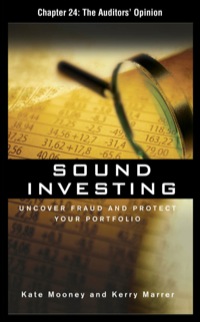Question 3 (7 marks) (This question is from the Week 5 Tutorial) Everyday Supplies Pty Ltd is a single-store retailer that sells a variety of tools, garden supplies, timber, small appliances, and electrical fixtures to the public, although about half of Everyday Supplies' sales are to construction contractors on account. Retail customers pay for merchandise by cash or credit card at cash registers when merchandise is purchased. A contractor may purchase merchandise on account, if approved by the credit manager based only on the manager's familiarity with the contractor's reputation. After credit is approved, the sales associate files a prenumbered charge form with the accounts receivable supervisor to set up the receivable. The accounts receivable supervisor independently verifies the pricing and other details on the charge form by reference to a management - authorised price list, corrects any errors, prepares the invoice, and supervises a part-time employee who mails the invoice to the contractor. The accounts receivable supervisor electronically posts the details of the invoice in the accounts receivable subsidiary ledger; simultaneously, the transaction's details are transmitted to the bookkeeper. The accounts receivable supervisor also prepares a monthly computer-generated accounts receivable subsidiary ledger without a reconciliation with the accounts receivable control account and a monthly report of overdue accounts. The cash receipts functions are performed by the cashier, who also supervises the cash register clerks. The cashier opens the mail, compares each cheque with the enclosed remittance advice, stamps each cheque "for deposit only", and lists cheques for deposit. The cashier then gives the remittance advices to the bookkeeper for recording. The cashier deposits the cheques daily, separate from the daily deposit of cash register receipts. The cashier retains the verified deposit slips to assist in reconciling the monthly bank statements, but forwards to the bookkeeper a copy of the daily cash register summary. The cashier does not have access to the journals or ledgers. The bookkeeper receives the details of transactions from the accounts receivable supervisor and the cashier for journalising and positing to the general ledger. After recording the remittance advices received from the cashier, the bookkeeper electronically transmits the remittance information to the accounts receivable supervisor for subsidiary ledger updating. The bookkeeper sends monthly statements to contractors with unpaid balances upon receipt of the monthly report of overdue balances from the accounts regeivable supervisor. The bookkeeper authorises the accounts receivable supervisor to write off accounts as uncollectible when six months have passed since the initial overdue notice was sent. At this time, the credit manager is notified by the bookkeeper not to grant additional credit to that contractor. Required: Describe five (5) internal control weaknesses in Everyday Supplies internal control for the cash receipts and billing functions (5 marks) and explain why they are weaknesses for two (2) that you have identified. (2 marks) (Word Limit: Minimum of 550 words. Maximum of 600 words)








